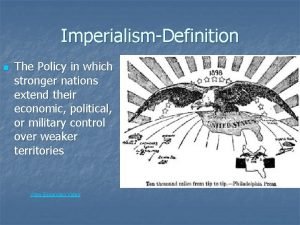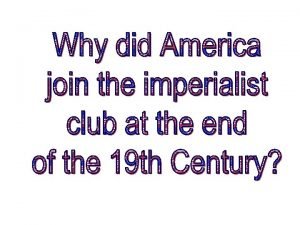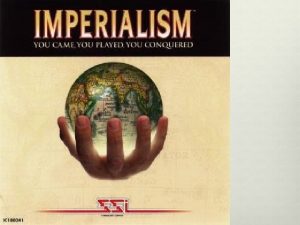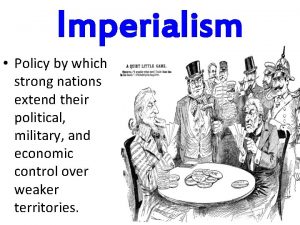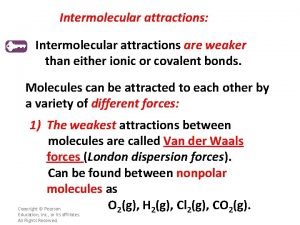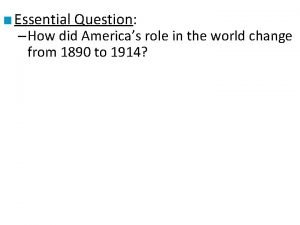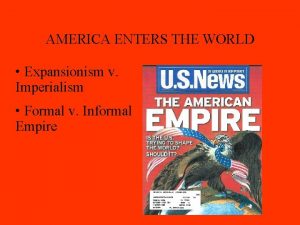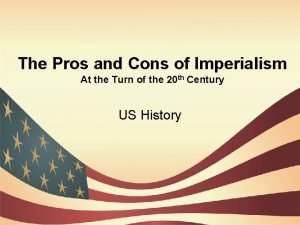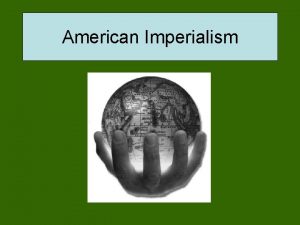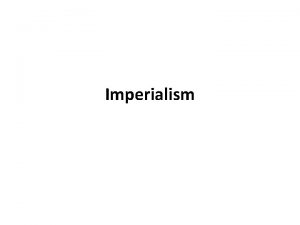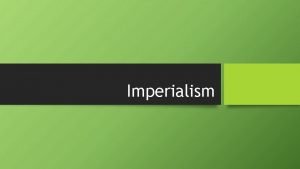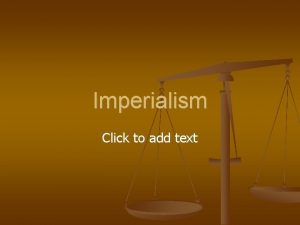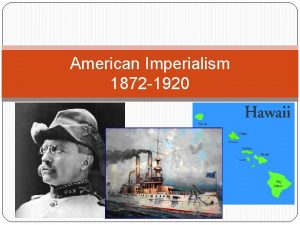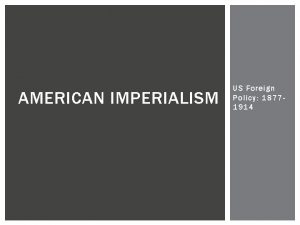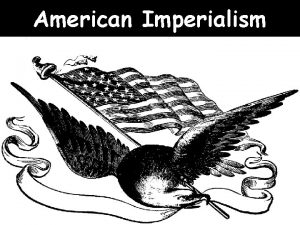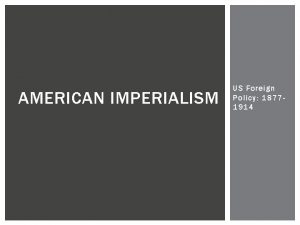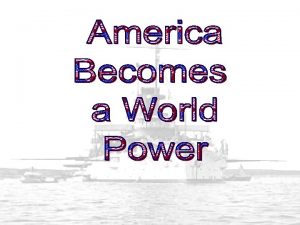American Imperialism Imperialism The policy in which stronger













- Slides: 13

American Imperialism

Imperialism • The policy in which stronger nations extend their economic, political and military control over weaker regions Motivations for U. S. Imperialism • • • Competition with European powers Desire for military strength Desire for overseas markets Need for raw materials Ethnocentrism; Cultural superiority complex

• Address this prompt… • Do you think theme of imperialism and creating large empires will return to human history? • X 4 corners…. Justify your position!

Hawaii • The United States began trading with Hawaiians as early as 1790 and by 1830 began buying land establishing sugar plantations • The Sugar industry grew quickly and gradually the Americans took control of most of the land businesses • Hawaiians began to resist the growing influence of Americans and Queen Liliuokalani took away powers the sugar planters held • The American Sugar planters revolted, overthrowing Queen Liliuokalani and Hawaii was later annexed in 1898

• How would you feel if you were a native Hawaiian? • Why? • Discuss

China • China was too weak to resist the efforts of foreign powers that wanted to exploit its vast resources • China was divided into sections, or “Spheres of Influence”, where each foreign power enjoying special rights and powers • In order to expand trading interest in China, the United States created an “Open Door Policy” • Allowed each foreign power in China to trade freely in each others sections or “Spheres of Influence” • The Boxer Rebellion • A secret martial arts society known as “The Boxers” resisted these foreign powers in a violent uprising

• What is at least one thing you find interesting about this painting? • Why?

The Spanish-American War • Cubans began fighting Spain for their independence and U. S. President Mc. Kinley sent the battleship USS Maine to protect American citizens and property • After 3 weeks at anchor in the Havana Harbor, an enormous explosion shattered the battleship • Yellow Journalism • Exaggerates the truth to get an emotional response from the reader • Although there was no proof, American newspapers blamed Spain for the explosion of the USS Maine “To Hell with Spain, Remember the Maine!” • The Sinking of the USS Maine was used to justify declaring war on Spain in 1898 • The Treaty of Paris • Spain freed Cuba, gave the Islands of Guam and Puerto Rico, and sold the Philippines to the U. S. for $20

• Do you think yellow journalism still exists today? • Why or why not? • What would it take for you to believe exaggerated reports?

Philippines • Emilio Aguinaldo believed the United States promised independence from Spain after the terms of the Treaty of Paris, he rose in revolt in 1899 • The Philippine-American War • Filipinos used guerilla tactics • Cost the U. S. $400 million • After suppressing the rebellion the U. S. set up a provisional government • The Philippines did not gain their independence until 1947

https: //www. youtube. com/watch? v=v 4 Z 9 W 7 Q 63 ec

America as a world power The Monroe Doctrine 1823 • Demanded that European countries stay out of affairs in Latin American nations • The Roosevelt Corollary 1904 • Warned that disorder in Latin America might “force the United States… to the exercise of an international police power” • The United States would now use force to protect it economic interests in Latin America • The Panama Canal 1914 • Officially ended Spain’s dominance in the Western Hemisphere The Monroe Doctrine, Roosevelt Corollary and the Panama Canal all ensured European nations could no longer colonize the Western Hemisphere

• Give at least three examples of American Imperialism. Please explain these examples in as much detail as you can remember!
 Imperialismdefinition
Imperialismdefinition The policy in which stronger nations
The policy in which stronger nations De lome letter definition us history
De lome letter definition us history Under imperialism the stronger nation attempts to
Under imperialism the stronger nation attempts to Imperialism refers to the policy in which strong nations
Imperialism refers to the policy in which strong nations Covalent bond vs hydrogen bond which is stronger
Covalent bond vs hydrogen bond which is stronger Which acid is stronger hcl or hbr
Which acid is stronger hcl or hbr Motives of old imperialism
Motives of old imperialism Old imperialism technology
Old imperialism technology Foreign policy imperialism
Foreign policy imperialism Foreign policy imperialism
Foreign policy imperialism Cons of imperialism
Cons of imperialism What three factors spurred american imperialism
What three factors spurred american imperialism Roots of american imperialism
Roots of american imperialism
